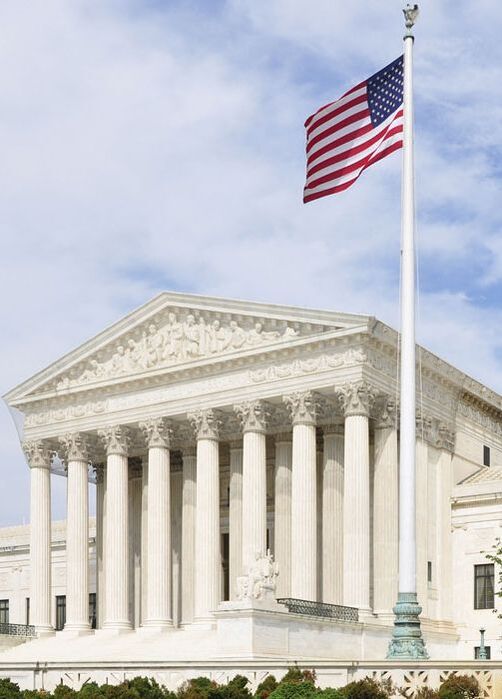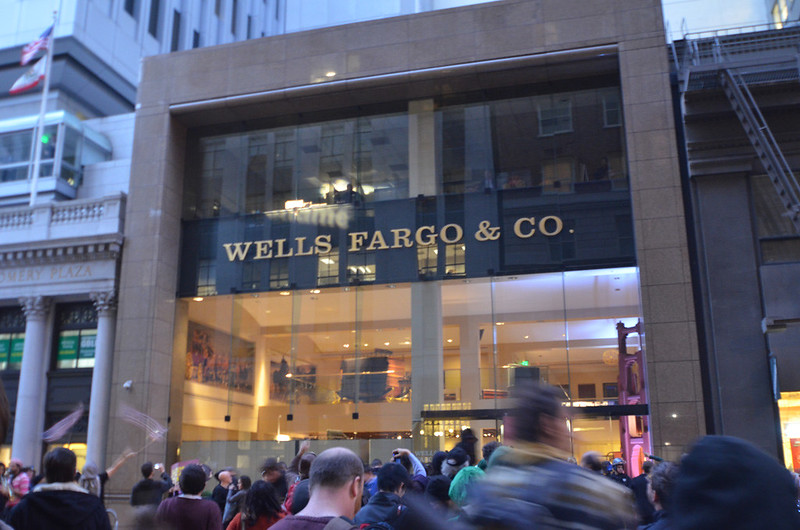|
We have begun a forum section. We would love it, if you wanted to join up and share w
1 Comment
You ever wonder what the Banks are going to do with all those houses, when no one will be left that can get a home loan? Seems renting them is one choice.
Hell, in DeKalb County, Georgia where we live, they are charged over $100 per month, per home, and they are supposed to have the homes boarded up. Well, we know how that goes, they don't board the homes up, and probably don't bother with collecting on the revenue. DeKalb County kind of sux, if you know what I mean... Photo by The Rheumatologist
Courts hate us, attorneys hate us...
Let us know of your experiences or concerns... Welcome to the Pro Se Blog! We hope you have a pleasurable experience and will come back often8/8/2009 Public shut out of Georgia courts
R. Robin McDonald Daily Report 07-03-2012 Judges across Georgia are closing courtrooms to the general public, citing as reasons a lack of space and security concerns. They are doing so even though the U.S. Supreme Court in January 2010 vacated a Georgia Supreme Court ruling that had upheld the closure of a DeKalb County courtroom and the removal of members of the public during jury voir dire. The U.S. justices said at the time that courtrooms should remain open to the public except in rare circumstances. Since then, courtroom closures have been challenged in DeKalb, Fulton, Cobb and Towns counties in Georgia’s appellate courts. Two weeks ago, the Southern Center for Human Rights sued the Cordele Judicial Circuit, claiming that its superior court judges are continuing to bar public access to court hearings despite a consent agreement in 2004 that they would stop the practice. The appellate challenges to closed courtrooms across the state have garnered mixed success, but Judicial Qualifications Commission officials are concerned. Closing courtrooms, said JQC Chairman John Allen, “could be a violation” of state judicial canons “depending on the set of facts surrounding the closing.” JQC director Jeffrey Davis told the Daily Report that in his work observing judges in action around the state, he is often met at the courtroom doors by local deputies who ask for his credentials and question why he is there. “I’ve personally experienced the chill that members of the public would feel,” he said. “I’m a lawyer. It’s not that I’m under-dressed for court.” Once a member of the public has passed through courthouse metal detectors or security at a courthouse entrance, Davis said, “No citizens should be questioned about the reason they are in a public courtroom.” But, he continued, “It seems to be the modus operandi around the state for courts to have deputies who question those who are simply in the court without business before the court. People ought to be able to watch their government in action. And justice which is done in secret—or a feeling by those who are coming to the courthouse that somehow they don’t have a right to be there—chills the public’s ability not only to access the courts but also to have confidence in the judicial system.” DeKalb County Last year, DeKalb State Court Judge Barbara Mobley resigned her post to end a JQC ethics investigation that included allegations she had interfered with the public’s access to a public courtroom. Mobley posted signs that restricted access to court hearings and directed court personnel to ask court observers to identify themselves and state their business, “thereby chilling the public’s right to observe matters before the court,” according to the JQC’s report to the Georgia Supreme Court. The Daily Report reported last year that Mobley was one of a number of DeKalb judges who had posted signs on their courtroom doors limiting courtroom access to criminal defendants, their lawyers and alleged victims. The sign on Mobley’s door said, “We do not have space for extra people.” Allen told the Daily Report last week that after Mobley resigned, he asked the DeKalb judges “to please meet and reconsider their policy of automatically closing their courtrooms as opposed to making a case-by-case decision.” “Openness of course is such a basic principle of the law in Georgia jurisprudence and U.S. constitutional jurisprudence,” Allen continued. “You erode the confidence in the integrity and fairness of the courts by closing the courts as a matter of course.” “Ours was just a courtesy call,” he said, “so that the conduct of the court didn’t rise to the level of being egregious.” Allen said he also reminded the DeKalb bench of the U.S. Supreme Court’s ruling in Presley v. Georgia, 130 S. Ct. 721, which slapped the Georgia Supreme Court for upholding a decision by DeKalb County Superior Court Judge Linda Hunter to close her courtroom during jury selection in a criminal case. In its ruling vacating the Georgia decision, the U.S. Supreme Court held that the Sixth Amendment right to a public trial extends to the voir dire of prospective jurors and that, “Trial courts are obligated to take every reasonable measure to accommodate public attendance at criminal trials.” The decision did allow for exceptions, holding that, “The right to an open trial may give way in certain cases to other rights or interests, such as the accused’s right to a fair trial or the government’s interest in inhibiting disclosure of sensitive information.” But, it stated, “Such circumstances are rare, however, and the balance of interests must be struck with special care. The party seeking to close a hearing must advance an overriding interest that is likely to be prejudiced, the closure must be no broader than necessary to protect that interest, the trial court must consider reasonable alternatives to closing the proceeding, and it must make findings adequate to support the closure.” Last year, DeKalb Chief State Court Chief Judge Wayne Purdom told the Daily Report that he posted signs limiting access to his courtroom on days when he heard jail pleas, when numerous prisoners were in court or on arraignment days when as many as 100 people might need seats. On those days, he said, members of the public were only admitted “by request.” While acknowledging that courtroom access “is a public right,” Purdom told the Daily Report that “regulation of entrance to the courtroom is a case-by-case situation.” Purdom also agreed that signs barring entry might have “a little bit of a chilling effect.” But, he continued, “I think there are limited situations where control of access is appropriate, although keeping the public out is not.” Fulton challenges Last month Atlanta attorney Brian Steel argued before the Georgia Court of Appeals that a judge’s decision to close a Fulton County courtroom had violated a criminal defendant’s constitutional rights. Steel appealed the decision of then-Fulton County Superior Court Judge Marvin Arrington, who in the 2009 rape trial of Corsen Stewart apparently barred the public, including the defendant’s mother, from the courtroom during jury voir dire in a situation nearly identical to the DeKalb closure that led to the U.S. Supreme Court ruling. Steel, who was not Stewart’s lawyer during the trial, said he took the case on appeal after Stewart’s mother came to see him, told him she had been locked out of the courtroom when attorneys were questioning potential jurors for her son’s case and burst into tears in his office. In 2010, Steel asked the Georgia Supreme Court to overturn the 2006 Fulton County murder conviction of Travion Reed, basing one argument on Judge Craig Schwall Sr.’s decision to close the courtroom during the testimony of two witnesses. Prosecutors countered that the courtroom’s closure was warranted because the two witnesses in question feared for their safety. A third witness in the case had been shot a short time after the murder, and a fourth witness had been threatened with a screwdriver in an attack that prosecutors claimed was likely linked to the defendant. At the time, neither Reid nor his attorney objected. That omission proved critical to the Georgia Supreme Court which—three weeks after its decision in Presley was vacated—affirmed Schwall’s decision to bar public access to his courtroom during the testimony. Steel did not represent Reed at his trial. In an opinion written by Justice George Carley, the high court held 6-1 that in order to prevail, Reid “must show that he was prejudiced by counsel’s decision not to object to the brief closing of the courtroom. … Indeed, to hold otherwise would encourage defense counsel to manipulate the justice system by intentionally failing to object in order to ensure an automatic reversal on appeal.” But Chief Justice Carol Hunstein, the lone dissenting vote, countered that, “No reason was articulated to support closing the courtroom” for the two witnesses when “closure was not sought for others who not only might have been, but actually were, placed in peril because of their testimony.” “The trial court’s findings were clearly inadequate to support closure of the courtroom,” her dissent stated. “Moreover, the trial court failed to consider any alternatives to closure,” she said. "Although the majority concludes that Reid has not shown prejudice,” Hunstein concluded, “Reid is not required to do so in order to obtain relief for a structural error which was a violation of the public-trial right.” Steel said last week that “Prejudice is pretty hard to show when you’re closing a courtroom. It’s an almostu nobtainable bar that the Supreme Court set.” Steel said that in the Stewart appeal he argued before the state appellate court on June 13, “I’m challenging the Reid decision. … It’s primed to have a new discussion about it.” Fulton County is not the only place where Steel has challenged closed courtrooms. In 2010, Steel also asked the Court of Appeals to overturn a Towns County defendant’s conviction because the judge moved jury selection to a nearby church and barred the public, including the defendant’s wife and daughter, from attending. The Court of Appeals reversed the conviction last March on other grounds without addressing the courtroom closure. Cordele claims Last month the Southern Center for Human Rights in Atlanta filed suit against the Cordele Judicial Circuit’s three superior court judges and the sheriffs of Ben Hill and Crisp counties in U.S. District Court in the Middle District of Georgia in Albany, claiming that county court officials are systemically barring the public from criminal court hearings that they say should be open to the public. Stephen Bright, the center’s president and senior counsel, noted that in 2003, as part of a larger civil rights suit on behalf of the county’s indigent defendants, the Southern Center accused circuit officials of restricting public access to the courts. But Bright said the 2003 suit was dismissed in 2004 after circuit officials promised that courtrooms would remain open. John Pridgen, chief superior court judge of the Cordele Circuit and a defendant in both suits, has called the 2003 allegations “complete fabrications” claiming, “There was never anything inappropriate about what we did then and what we do now.” Another Cordele Circuit judge noted in a letter filed with the Southern Center’s complaint that the courtroom in the Crisp County Law Enforcement Center is particularly small, with limited seating. Southern Center attorney Gerry Weber told the Daily Report last month that the center also has received anecdotal evidence that other courtrooms are being closed “in a lot of different places” across the state and is launching an investigation to determine the extent of the problem. ‘Keeps us free’ Courtroom public access issue came to the fore in Cobb County last year, when former Governor Roy Barnes secured the dismissal of an indictment against the CEO of the Cobb EMC because the grand jury presentments were made inside the new courthouse while its doors were locked and deputies barred access via a separate catwalk entrance. The Georgia Court of Appeals upheld the indictment’s dismissal in March, ruling that, “The Georgia Supreme Court has held that any failure to return the indictment in open court is per se injurious to the defendant.” Former Georgia Supreme Court Chief Justice Leah Ward Sears, who dissented in the state Supreme Court’s Presley decision, said in an interview with the Daily Report that the U.S. Supreme Court opinion vacating Georgia’s Presley decision “made it pretty clear … that you cannot, as a matter of policy, close courtrooms.” In her dissent in Presley, Sears specifically addressed arguments based on lack of space. “A room that is so small that it cannot accommodate the public,” she wrote, “is a room that is too small to accommodate a constitutional criminal trial.” But the former chief justice, now a partner at Schiff Hardin, told the Daily Report that judges still may close a courtroom “in very narrow circumstances.” But their reasons for doing so, “have to be well articulated,” she said. “It has to be on a case-by-case basis … It also has to be a last resort.” Sears said she doesn’t belittle judges who struggle with issues of space and security. “That’s what created the majority in the Presley case,” she said. “It wasn’t that the judges felt you should keep people out. They saw what a problem it was in these tiny courtrooms trying to manage things. You get very sympathetic when a trial judge is trying to … keep things secure.” The issue, she explained, is one of competing values. But to trump the value of open courtrooms, she said, “would take some effort. … Public access is one of the cornerstones of our democracy. It’s what keeps us free.” Daily Report: Public shut out of Georgia courts |
AuthorJames and I together make up the username NootkaBear. We have been practicing solely as Pro Se litigants since 2004. Pro Se litigants are treated as worth less than dirt. That must change! Archives
February 2013
Archives
February 2013
CategoriesCategories
|



 RSS Feed
RSS Feed

